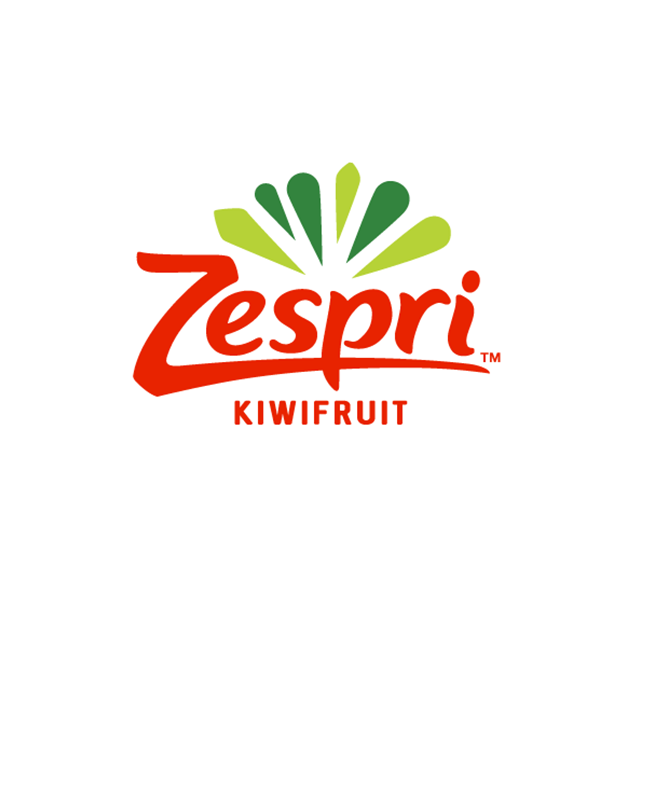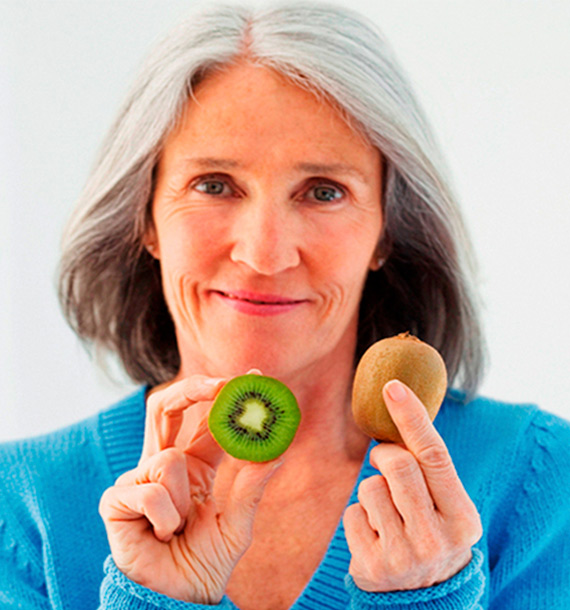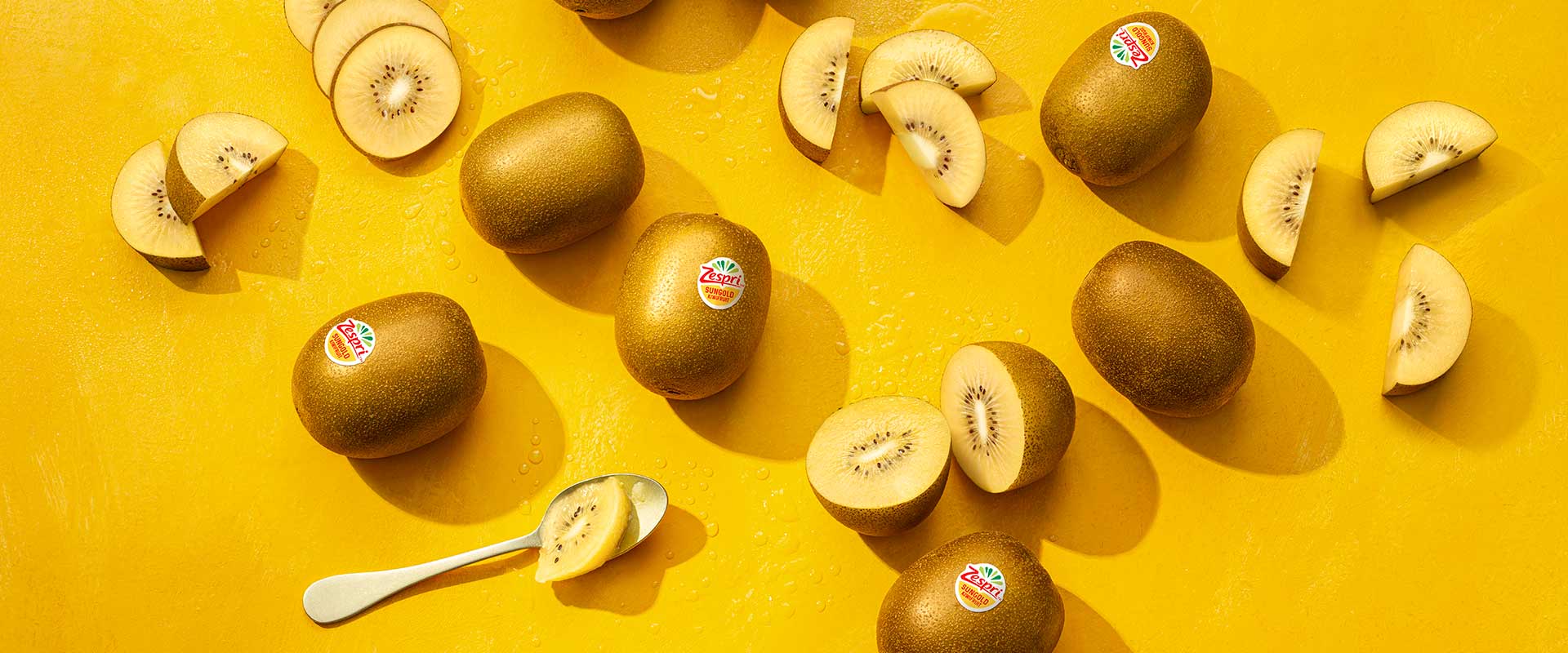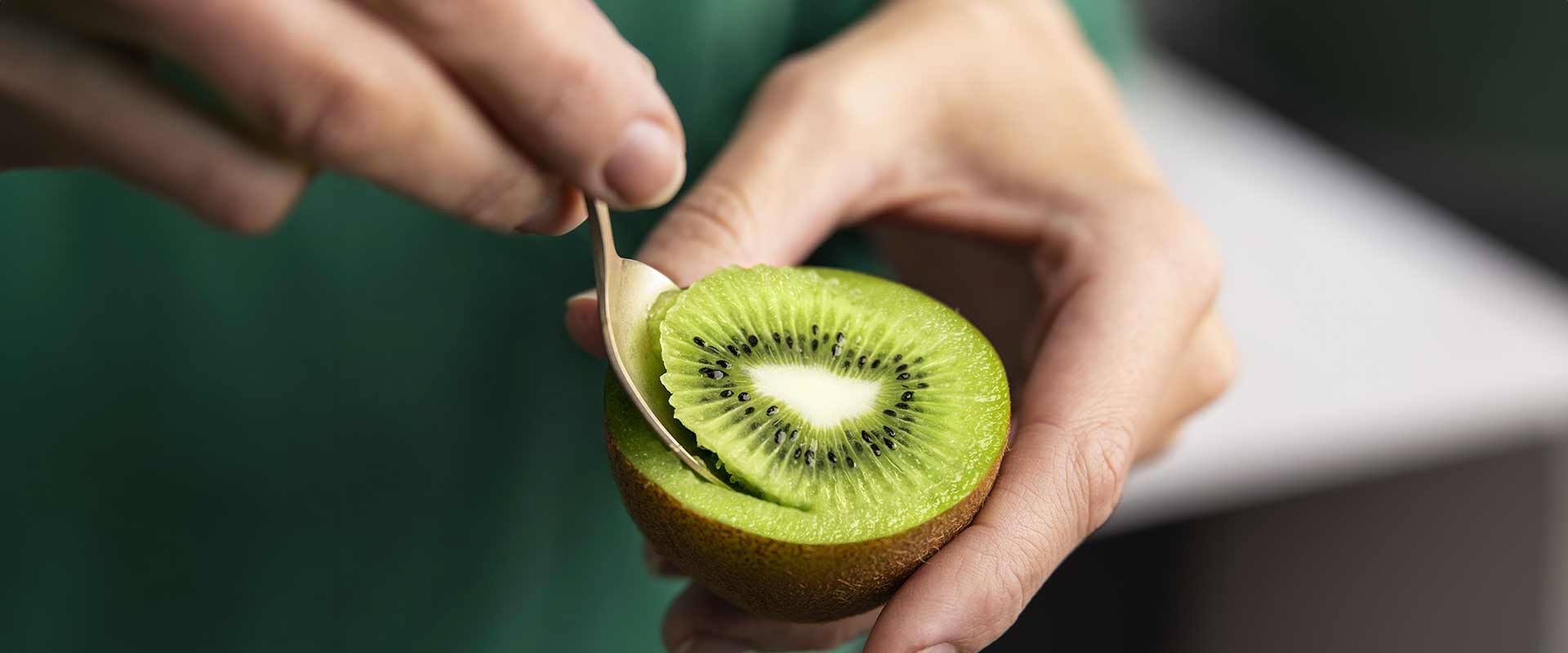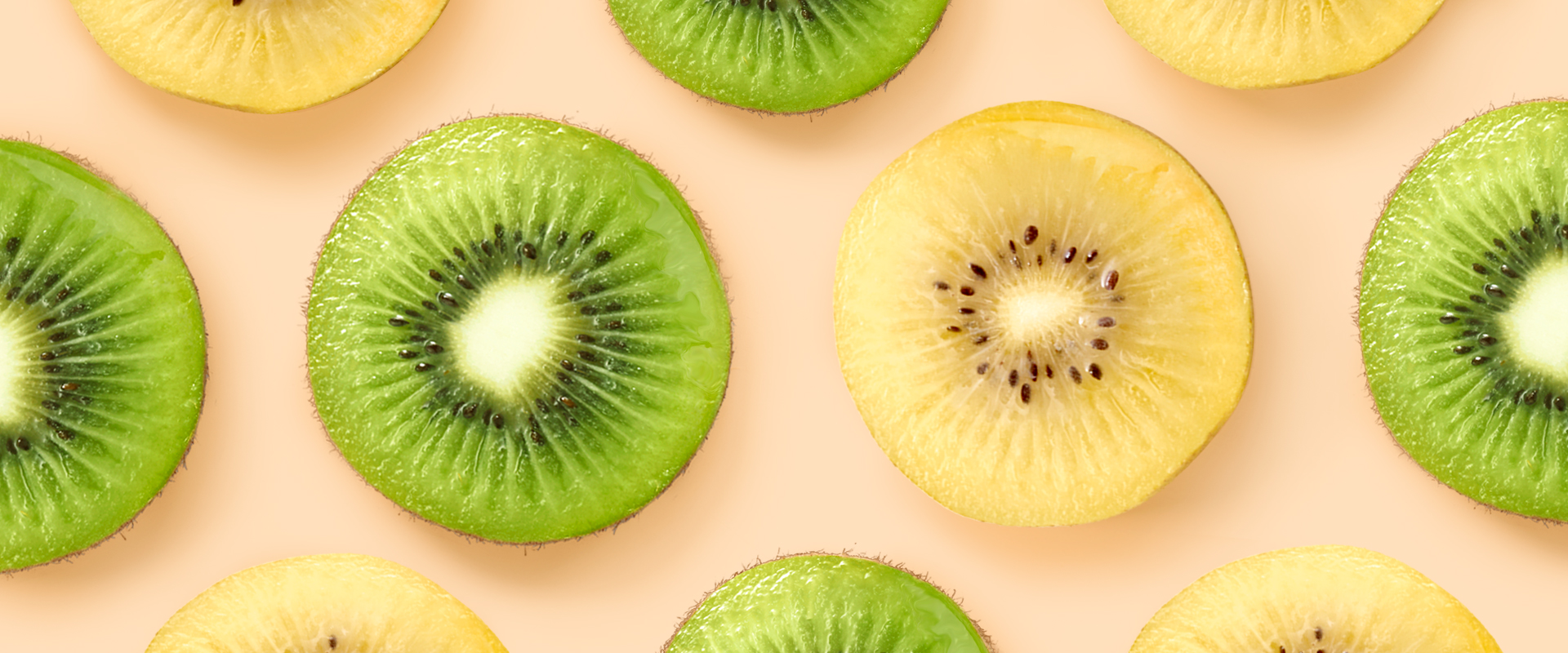Zespri Green kiwifruit: helping you ensure your vitamin C intake while nursing
-
Vitamin C
-
Potassium
-
Fibre
-
Zespri Green kiwifruit
-
Folic Acid
-
Lactation
Vitamin C while breastfeeding
Vitamin C plays a role in tissue growth and repair, making it essential for the proper development of your breastfeeding baby.1 It is especially important in the growth of bones, teeth and collagen, an essential protein found in many organs of the body which also helps heal wounds.1 Vitamin C also helps boost the immune system's ability to fight off disease, helping protect your baby against a wide variety of diseases and infections.1
As a water-soluble vitamin, vitamin C is able to pass into breast milk.1 Your dietary intake therefore directly impacts your breastfed baby.
Zespri Green kiwifruit: A high vitamin C content
A well-nourished mother with a healthy diet will have just the right amount of vitamin C in her breast milk for her baby. However, mothers who do not get enough of this important vitamin will not be able to provide enough vitamin C for their baby through breast milk. Eating foods rich in vitamin C is therefore particularly important when you are breastfeeding.
Zespri Green kiwifruit is one of the most highly concentrated sources of vitamin C, containing 85 mg per 100 g – that’s even more vitamin C than oranges and strawberries!4,5 What’s more, Zespri Green kiwifruit is bursting with over 17 other vitamins, minerals and antioxidants, making it one of the most nutritious foods available!
Sources- National Institutes of Health. Vitamin C. Fact Sheet for Consumers. Available from: https://ods.od.nih.gov/factsheets/VitaminC-Consumer/ (accessed 07.11.2016)
- European Food Safety Authority. Scientific Opinion on Dietary Reference Values for vitamin C. EFSA Journal 2013;11:3418
- Zealand Ministry of Health. New Zealand FOODfiles 2014 Version 01.
- USDA National Nutrient Database for Standard Reference, Release 28 (2015).
- Mayo Clinic Drugs and Supplements. Vitamin C (ascorbic acid). Available from: http://www.mayoclinic.org/drugs-supplements/vitamin-c/safety/hrb-20060322 (accessed 07.11.2016)
